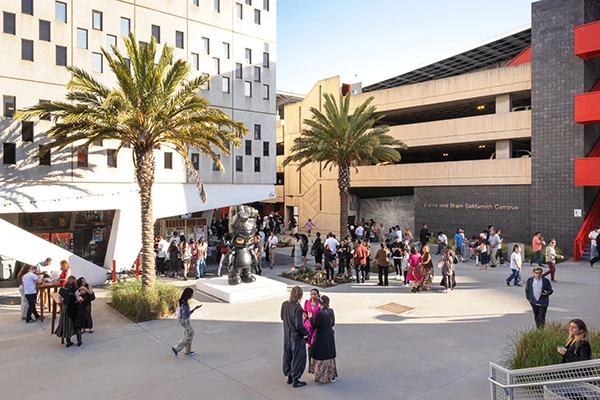How Snap Lens Lab Led Two Young Digital Artists to Otis College
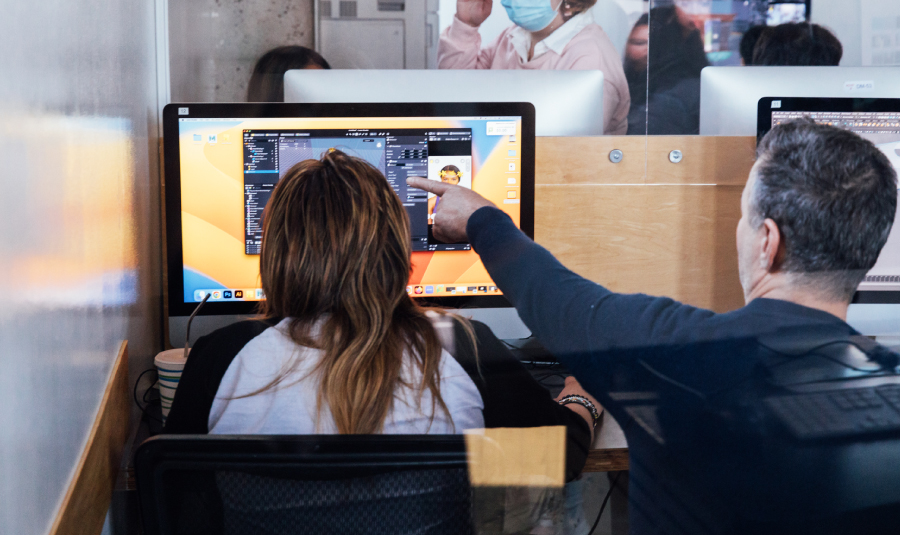
Snap Lens Lab @ Otis College is a pre-college program during which students create dynamic augmented reality (AR) experiences for Snapchatters around the world. During the three-week program, students learn the ins and outs of Snap Inc.’s Lens Studio, a powerful application designed for artists and developers to build AR experiences for users. By the end, the students will have learned how to harness AR into their own 2D and 3D art using a toolkit that also includes Maya, Adobe Illustrator, and Photoshop.
Two current Otis College students, Phuong Le and Phoebe Kim, attended Snap Lens Lab when they were in high school, an enriching experience that influenced their decision to pursue an art and design education at Otis. Having access to AR and 3D design instruction enabled both students to think more broadly about their own art and design work and what they’d like to do professionally. “It’s definitely made me recognize another direction in which I could take the art I already make into an AR experience,” says Le. She and Kim share more about their experiences below.
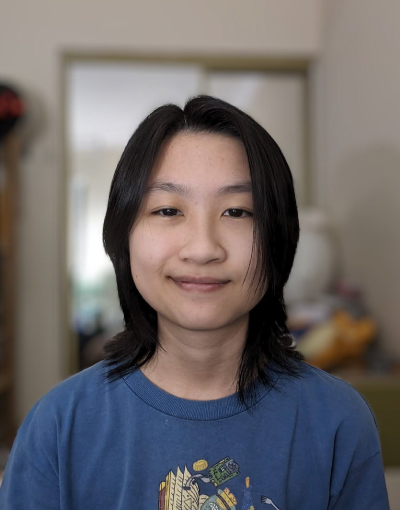 Phuong Le
Phuong Le
Part of the class of 2026, Le is majoring in Game and Entertainment Design. She attended Snap Lens Lab @ Otis College after she had been accepted to the College and figured the two-week summer program would be a good way to get a feel for college life while learning valuable AR skills. “AR was always a really interesting thing to me because I’ve been a huge fan of VR [virtual reality] since I was in middle school,” she says. “At around that time, stuff like Windows Mixed Reality was coming out, and that was their way of having both AR and VR on the same machine. I’d always hoped that AR would get out of the ‘gimmick’ space that it's been in the public eye.”
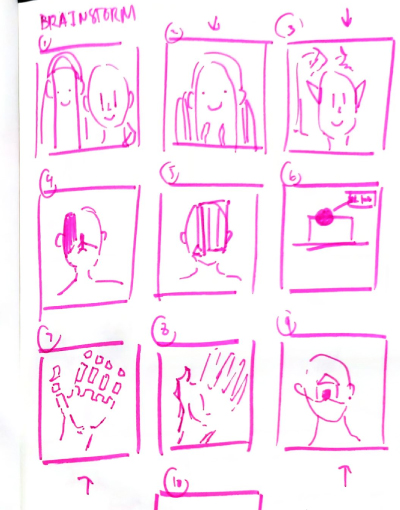 Her current work is mostly in 3D modeling, but she’d like to improve her skills in
2D concept art and “vis dev” (visual development). She’s busy with school projects that are allowing her to get familiar with various
software programs, working on how to model cars, TVs, and other video game props.
“I constantly aim to make my 3D work look ‘painterly,’” she says. “A good example
of this is what they’ve done with Arcane or Life is Strange—these have influenced me to push my art in that direction.”
Her current work is mostly in 3D modeling, but she’d like to improve her skills in
2D concept art and “vis dev” (visual development). She’s busy with school projects that are allowing her to get familiar with various
software programs, working on how to model cars, TVs, and other video game props.
“I constantly aim to make my 3D work look ‘painterly,’” she says. “A good example
of this is what they’ve done with Arcane or Life is Strange—these have influenced me to push my art in that direction.”
One valuable lesson Le learned in Snap Lens Lab was that the face filters in Snapchat are just the beginning of what’s possible in the app. “I’d always thought that maybe it was just software to make face filters, but you can make entire AR experiences in it,” she says. “I think it’d be an excellent tool for marketing a game if I were to be a part of creating one. Many companies are already doing that by using creatively made filters to market their games, and I think it’s another great way to spread interactive media around a community.”
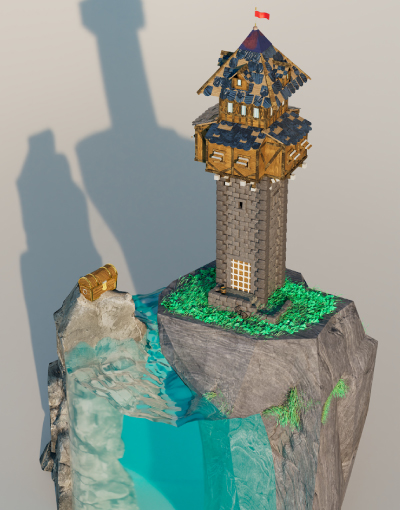 And in addition to learning that AR experiences are not made strictly through programming
and 3D modeling outside of a unified program, she immersed herself in the entire design
process. “We drew sketches of different ideas we wanted to do for our AR experiences,
worked on different prototypes, and refined them into a final product,” she says.
“It’s definitely made me recognize another direction in which I could take the art
I already make into an AR experience since I’m a lot more familiar with the tools
that the Lens Studio from Snapchat has to offer.”
And in addition to learning that AR experiences are not made strictly through programming
and 3D modeling outside of a unified program, she immersed herself in the entire design
process. “We drew sketches of different ideas we wanted to do for our AR experiences,
worked on different prototypes, and refined them into a final product,” she says.
“It’s definitely made me recognize another direction in which I could take the art
I already make into an AR experience since I’m a lot more familiar with the tools
that the Lens Studio from Snapchat has to offer.”
You can see more of Le’s work on her Instagram, @creepersoul23.
 Phoebe Kim
Phoebe Kim
Part of the class of 2027, Kim is currently in her Foundation year and has not yet declared a major, though she says most of her work is in digital art with an aesthetic she describes as “expressive, realistic, and minimalistic.” She attended Snap Lens Lab @ Otis College because she wanted to expand her artistic scope. “I have always limited myself to either traditional or basic digital drawings but never experimented with 3D. I guess I just wanted to give it a try,” she says.
 Not only did she learn about AR and 3D art, but she made meaningful connections with
instructors, classmates, and visiting lecturers. “That was the most fruitful aspect
of the program for me personally,” she says. “Listening to guest speakers’ lectures
and life stories inspired me to immerse myself in the art industry, which ultimately
influenced my decision to attend art school, specifically Otis College.”
Not only did she learn about AR and 3D art, but she made meaningful connections with
instructors, classmates, and visiting lecturers. “That was the most fruitful aspect
of the program for me personally,” she says. “Listening to guest speakers’ lectures
and life stories inspired me to immerse myself in the art industry, which ultimately
influenced my decision to attend art school, specifically Otis College.”
Throughout the program Kim felt supported by her Otis instructors and the Snap Inc. staff who collaborate on the program. “I really enjoyed [Otis instructor] Raul Moreno’s lectures and way of teaching and genuinely felt like the Snap staff had our best interests at heart and that they really strived for us to succeed,” she says. “That, ultimately, was the reason why I decided to attend Otis. I will utilize the many tips and tricks I learned at Snap Lens Lab for my personal work, whether that be 3D or any digital media works. I’m very grateful.”
You can see more of Kim’s work on her Instagram accounts, @kim.phoebe_2 and @photosyndesign.
About Snap Lens Lab
Snap Lens Lab @ Otis College is open to high school students with no prior experience required in the myriad design and tech tools used throughout the program. The program provides 15 scholarships to eligible Los Angeles County high school students from underrepresented populations, which covers full participation in the program. Participants will be taught by instructors from Otis Extension, the Game and Entertainment Design and Animation BFA programs, as well as members of the Snap team, who also mentor students in aspects of Lens Studio. The program includes guest speakers from the design community and the Snapchat team, as well as field trips to museum exhibitions throughout Los Angeles that explore aspects of AR production, storytelling, design process, and 2D and 3D art. The pre-college program culminates in a final exhibition of students’ work.
More information and the application to attend are on the Snap Lens Lab website.
Related News
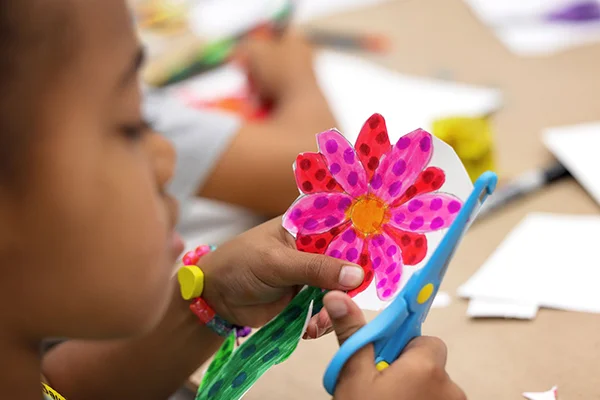
What to Expect When Registering for Otis College’s Summer Youth Camps
February 25, 2026
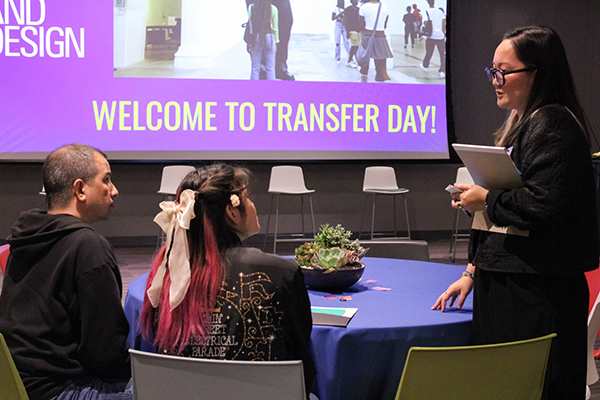
A Step-by-Step Guide to the Transfer Process at Otis College
February 25, 2026
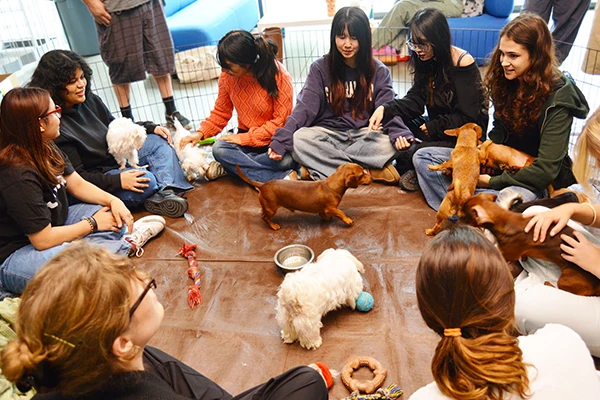
Otis College Students are Supported by a Wraparound Network of Care
February 13, 2026
